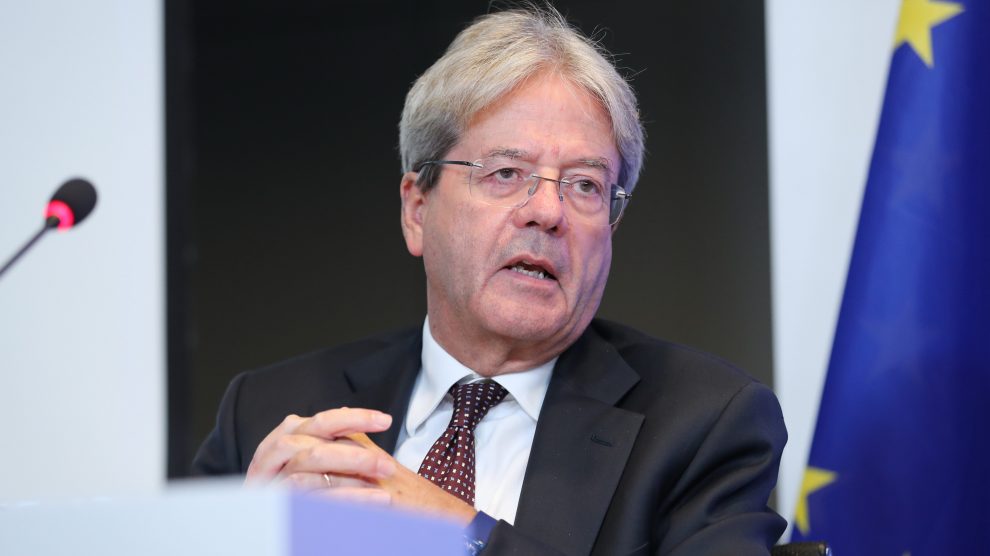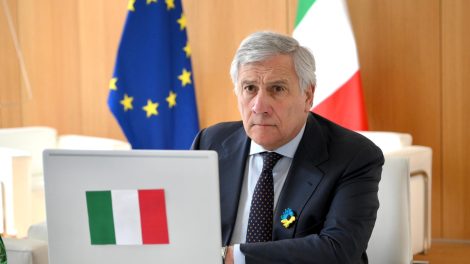Today the European Union expects a different attitude from Chinese authorities compared to five years ago, according to Paolo Gentiloni, European Commissioner for the Economy. This was during a debate organised by the Brookings Institution, where the former Italian Prime Minister is a distinguished fellow in the Foreign Policy programme, although he’s been on leave due to his current job.
Other three key figures from Brookings were taking part in the virtual event, centred on the European recovery and Transatlantic ties: David Wessel and Gian Maria Milesi-Ferretti – respectively Director and Senior Fellow at the Hutchins Center on Fiscal and Monetary Policy – and Thomas Wright, Director of the Center on the United States and Europe.
“Things have changed in the last 4 to 5 years,” said Mr Gentiloni. “Five years ago the message from Europe was ‘[let’s] do business, ask for a level playing field, support our companies in China.’ Then the lesson of reality showed us that we need to strengthen our political position if we want to keep the doors open for trade and investment.”
The commissioner refrained to comment on those times – “I don’t know if we were too open or too weak in the past” – but he took stock of the EU’s change of tack, which according to the timeframe he provided occurred with Donald Trump at the White House and continued under Joe Biden. “Surely we still pursue economic reaction and investment, but we pretend a different attitude from the Chinese authorities.”
“We are perfectly aware of the challenging risks” that dealing with China entails, he continued, stressing that Beijing’s “authoritarian model […] is a challenge that Europe must face.” Hence the EU’s “double-track” efforts, which Mr Gentiloni admitted are not easy – and yet, “what alternative do we have?”
“We are obliged to stand up and defend our values and at the same time we have to cooperate to tackle climate change, and we are [also] interested in trade. Can these things go on together? This is a challenge, but I don’t think we can accept the idea that no cooperation is possible on climate change and that defending our autonomy means disrupting all the global trade economy.”
Meanwhile, the Transatlantic relationship has suffered some setbacks even with President Biden at the helm. Like the withdrawal from Afghanistan and the AUKUS security agreement between Australia, the United Kingdom and the United States, which was perceived by the EU as a “lack of good communication among partners.”
However, Commissioner Gentiloni believes that these things must be looked at from a “longer perspective; from the EU’s position, the new Biden administration is an extraordinary change for [the better], especially because of the clear commitment and message on multilateralism.” And the global taxation agreement is an example from this viewpoint, he added.
The pandemic presented the EU with a challenge: “for the first time” in its history, it must “adopt more independent industrial strategies” on gas, semiconductors, raw materials and throughout the healthcare and pharmaceutical supply chain, he said, adding that “the Commission is finally working, after years of difficulties, to defend our autonomy.” But this must be done, as he remarked, ensuring that “the single market remains an economy based on competition.”
When the EU talks about autonomy, strategy and common defence – as it has been doing for at least 50 years with “very limited results” -, the US perk up their ears. “The conclusion of the Afghan mission reinforced the awareness in the EU [regarding] the need to try to play a more important geopolitical role,” said the commissioner.
The question is whether this is a cause for concern or an opportunity for the EU’s allies in the US, underscored the Italian. Thus, since the last decade showed that America is strongly committed in Nato and focussed on the Pacific area, “Europe could acquire some political weight in some areas that are very important to [it] like the Mediterranean, Northern Africa, the Balkans – and this should be considered good news for Nato and the US-EU partnership.”
Hence why Gentiloni defines this process as an opportunity for “mutual reinforcement”: “we are on the same page in addressing the Chinese challenge, we are strongly committed to the function of NATO, especially towards Russia […] The question is whether we Europeans will be able to make this decision,” warned Mr Gentiloni.





